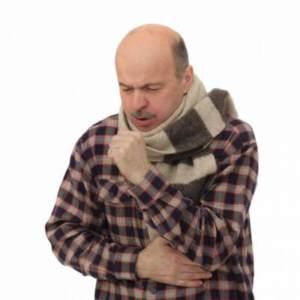Avoiding Pneumonia: What You Need to Know

Pneumonia is more common than many people realize. Often, the condition is confused with flu or cold symptoms and people don’t know they have it. Mild symptoms can clear up on their own after a few days following home treatment, but sometimes the condition worsens and becomes serious. Lets take a look at some of the common ways of avoiding pneumonia before it starts.
What is Pneumonia?
Pneumonia is a lung infection that can be caused by invasion from a variety of organisms including fungi and bacteria or viruses. When the lungs are attacked in this way, the air sacs that help us breathe fill up with pus and other fluid, making it hard to breathe and impairing the ability of the lungs to get oxygen into the blood stream. It is a common ailment and is usually mild, but can develop into a serious, life threatening disease that requires hospital treatment. It’s most common among those with weakened immune systems such as elderly people, smokers and alcoholics or those weakened from infections like the flu.
Pneumonia is divided into two types:
- Community-associated pneumonia: so called because it’s caught in the community as we go about daily activities at work, school or leisure.
- Healthcare-associated pneumonia: so called because it’s caught during a hospital or nursing home stay. This type may be more serious, not because the condition is necessarily different, but because the people affected are already ill or in a weakened condition.
Symptoms of Pneumonia
The symptoms of pneumonia can come on quickly, and include:
- Running a fever and having chills.
- Feeling very tired and weak.
- Feeling sick and/or vomiting.
- Having diarrhea.
- Fast heartbeat.
- Being short of breath.
- Coughing. You may produce mucus that is green or rust colored, and it could be tinged with blood.
Older people may not have fever or chills, or they may have a cough without mucus. It’s common for elderly people to be confused or have delirium when they have pneumonia. Existing lung diseases may also get worse.
Mild pneumonia symptoms are sometimes referred to as ‘walking pneumonia’. You feel ill and have symptoms, but you are not bedridden.
Ways to Prevent Pneumonia
You can lessen the likelihood of contracting pneumonia with these precautionary methods:
- Hygiene: Regular hand washing is a simple but very effective way of reducing the spread of germs that can transmit pneumonia from person to person. Other simple hygiene practices that can have a big impact in containing the germs include disposing of used tissues and covering the mouth and nose when you sneeze or cough.
- Vaccinations: Getting a flu shot is one of the best ways of protecting yourself from pneumonia since flu is one of the commonest causes. Flu shots are recommended for children under five and adults over 65, as are shots against pneumococcal pneumonia. Other vaccines that can help prevent pneumonia include those against chicken pox, measles and pertussis. If you or your children are not up to date with these commonly recommended vaccines, speak to your doctor about remedying that.
- Stop Smoking: People who smoke are in a high-risk group for pneumonia because their lungs are less able to fight off irritations and infections.
- General Health: We take health for granted, often not noticing what good health feels like until we no longer have it. Being aware of your general state of health can help you identify when lingering symptoms are dragging you down. Any symptoms that last longer than a few days should be investigated as mild pneumonia can worsen if it’s not treated.
Also related to health is lifestyle. Eating good, healthy food, getting plenty of exercise and sleeping properly all help the body stay fit and fight off infections before they take hold and become serious illnesses. Having a strong immune system also helps the body fight off infections much faster.
When to Call the Doctor if You Suspect Pneumonia
Because the condition can be confused with other common ailments, it’s helpful to know when to call for medical help. If you suspect your cold has turned to pneumonia, get treatment for it. Warning signs include:
- Coughing up large amounts of blood – call 911.
- Fear you cannot keep breathing – call 911.
- Have chest pain that feels crushing or squeezing – call 911.
- Cough up rust or blood tinged mucus from the lungs – call your doctor.
- Have a fever with shaking chills – call your doctor.
- Have fast breathing, wheezing and shortness of breath – call your doctor.
For other, milder symptoms, such as classic cold symptoms, mucus that comes from postnasal drip, muscle aches and pains or mild respiratory problems, home treatment may be appropriate.




